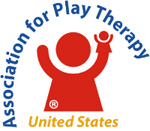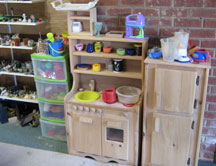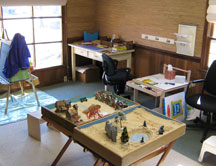Why Play Therapy and Who Can Benefit?

 Most children go through difficult times, such as divorce of their parents, trouble making friends, or adjusting to changes at school or home. Some children need more help than others to get through these times. Play therapy is the most appropriate treatment for helping children work through difficult times and helping parents gain a better understanding of what their child is going through.
Most children go through difficult times, such as divorce of their parents, trouble making friends, or adjusting to changes at school or home. Some children need more help than others to get through these times. Play therapy is the most appropriate treatment for helping children work through difficult times and helping parents gain a better understanding of what their child is going through.
Children ages 3-10 benefit most from play therapy versus traditional “talk therapy” as they can more effectively process through difficult situations and difficult emotions through play. What counseling and psychotherapy aim to do for adults, play therapy aims to do for children. Through play therapy, children learn to communicate with others, express feelings, modify behavior, develop problem-solving skills, and learn a variety of ways of relating to others. Play provides a safe psychological distance from their problems and allows expression of thoughts and feelings appropriate to their development.
 Play therapy allows trained mental health practitioners who specialize in play therapy, to assess and understand children’s play. Further, play therapy is utilized to help children cope with difficult emotions and find solutions to problems.
Play therapy allows trained mental health practitioners who specialize in play therapy, to assess and understand children’s play. Further, play therapy is utilized to help children cope with difficult emotions and find solutions to problems.
Who Does Play Therapy?
The practice of play therapy requires extensive specialized education, training, and experience. A play therapist is a licensed (or certified) mental health professional who has earned a Master’s or Doctorate degree in a mental health field with considerable general clinical experience and supervision.
 With advanced, specialized training, experience, and supervision, mental health professionals may also earn the Registered Play Therapist (RPT) or Registered Play Therapist-Supervisor (RPT-S) credentials. The Stone Center for Counseling & Leadership has several experienced play therapists on staff who specialize in play therapy and child-related issues.
With advanced, specialized training, experience, and supervision, mental health professionals may also earn the Registered Play Therapist (RPT) or Registered Play Therapist-Supervisor (RPT-S) credentials. The Stone Center for Counseling & Leadership has several experienced play therapists on staff who specialize in play therapy and child-related issues.
For more information contact info@thestonecenternc.com
